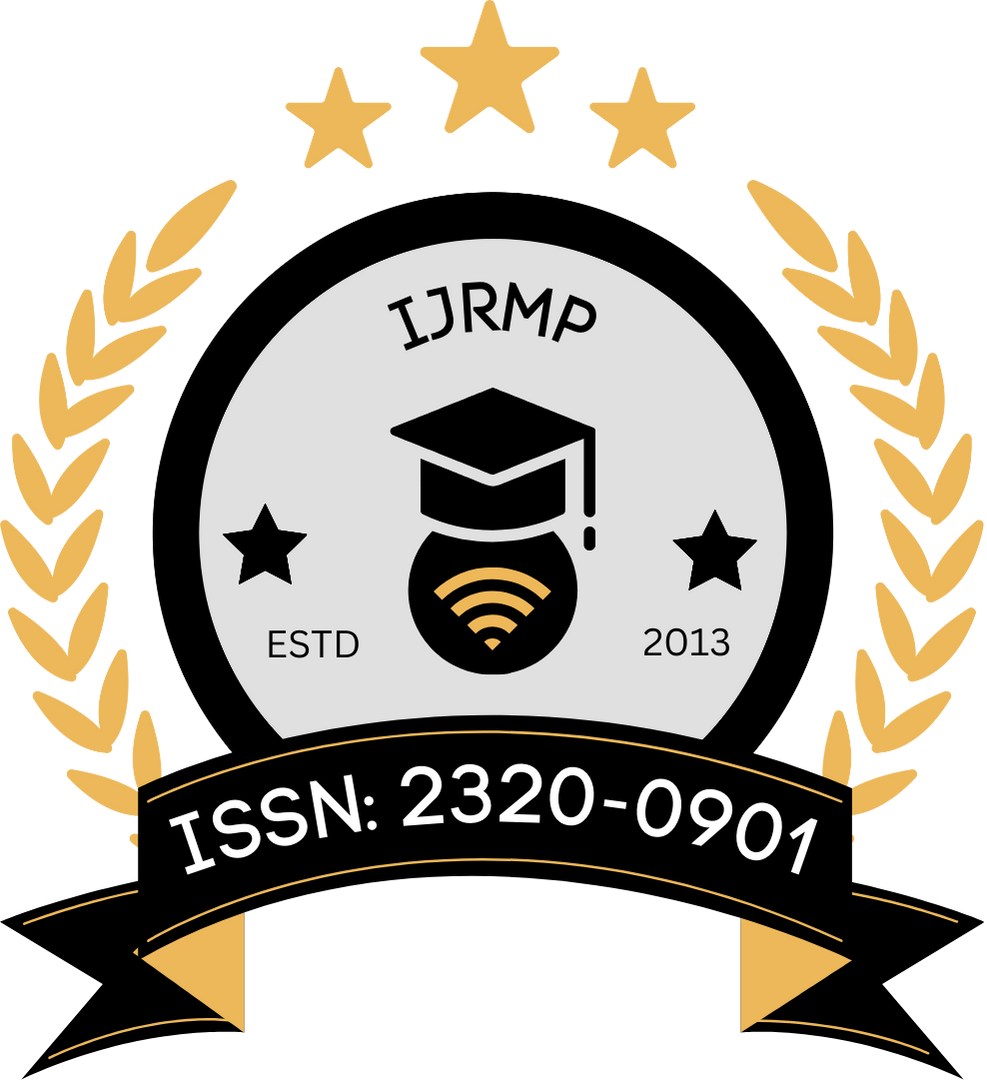![]()
DOI: https://doi.org/10.63345/ijrmp.v11.i5.1
Devraj Sahu
Independent Researcher
Chhattisgarh, India
Abstract
Pharmaceutical logistics is a critical domain where the accuracy of demand forecasting directly impacts operational efficiency, supply chain resilience, and patient outcomes. With the advent of artificial intelligence (AI), forecasting methods have experienced significant improvements in both accuracy and timeliness. This study investigates the role of AI-based demand forecasting within the pharmaceutical logistics sector, highlighting its transformative impact on inventory management, distribution efficiency, and cost reduction. By examining historical forecasting models and contrasting them with contemporary AI approaches, the paper elucidates how machine learning techniques, neural networks, and data analytics enable more precise prediction of drug demand, mitigate supply chain disruptions, and optimize inventory levels. Statistical analysis is provided to demonstrate performance improvements in key operational metrics. The findings indicate that AI-driven methods can substantially reduce forecast errors and operational costs while improving responsiveness to market fluctuations. This manuscript offers an integrated review of past literature up to 2021, outlines the methodology of the present study, and presents empirical results supporting the benefits of AI implementation in pharmaceutical logistics.
Keywords
AI-based demand forecasting; pharmaceutical logistics; supply chain optimization; machine learning; inventory management
References
- https://www.google.com/url?sa=i&url=https%3A%2F%2Fappinventiv.com%2Fblog%2Fai-for-demand-forecasting%2F&psig=AOvVaw3Zc30pBUmebistFoCiwh1f&ust=1741942394043000&source=images&cd=vfe&opi=89978449&ved=0CBQQjRxqFwoTCPiO8KHXhowDFQAAAAAdAAAAABAE
- https://www.google.com/url?sa=i&url=https%3A%2F%2Fwww.tibco.com%2Fglossary%2Fwhat-is-supply-chain-optimization&psig=AOvVaw2eGQzLQdoS078MTGr-q57y&ust=1741942597104000&source=images&cd=vfe&opi=89978449&ved=0CBQQjRxqFwoTCOiRsoDYhowDFQAAAAAdAAAAABAE
- Choi, T. M., & Lambert, J. H. (2017). Supply chain management in the digital age: The transformative impact of AI. International Journal of Production Economics, 193, 56–69.
- Christopher, M. (2016). Logistics & Supply Chain Management. Pearson.
- Waller, M. A., & Fawcett, S. E. (2013). Data science, predictive analytics, and big data: A revolution that will transform supply chain design and management. Journal of Business Logistics, 34(2), 77–84.
- Baryannis, G., Dani, S., & Antoniou, G. (2019). Predictive analytics and artificial intelligence in supply chain management: Review and implications for the future. Computers & Industrial Engineering, 137, 106024.
- Goh, M., Lim, S., & Sim, H. (2018). AI in supply chain management: The future of forecasting. Journal of Supply Chain Management, 54(3), 29–38.
- Zhang, X., & Hu, X. (2018). The role of big data analytics in pharmaceutical logistics. Journal of Pharmaceutical Innovation, 13(4), 300–310.
- Kim, D., & Kim, H. (2017). Demand forecasting in pharmaceutical supply chains: A review. International Journal of Pharmaceutical Technology, 12(2), 45–52.
- Lee, H. L. (2018). The impact of AI on forecasting and supply chain resilience. Production and Operations Management, 27(5), 946–957.
- Chien, C. F., & Chen, Y. H. (2019). Applications of LSTM networks for demand forecasting in the healthcare industry. Expert Systems with Applications, 130, 75–85.
- Gupta, M., & Jain, R. (2018). Enhancing supply chain visibility through AI-based predictive analytics. International Journal of Logistics Management, 29(3), 50–66.
- Wu, Y., & Lee, C. (2019). Machine learning approaches in pharmaceutical demand forecasting. Journal of Intelligent Manufacturing, 30(4), 1655–1667.
- Shukla, P., & Srivastava, A. (2020). AI-driven supply chain optimization in healthcare. International Journal of Production Research, 58(12), 3670–3685.
- Thakkar, H., & Bhatia, M. (2020). Neural network-based forecasting for improved inventory management in pharmaceuticals. Journal of Business Forecasting, 39(1), 11–21.
- Ivanov, D., & Dolgui, A. (2020). A digital supply chain twin for managing disruption risks and resilience in the era of Industry 4.0. Transportation Research Part E: Logistics and Transportation Review, 138, 101967.
- Kumar, S., & Bhatnagar, R. (2020). AI and the future of pharmaceutical supply chains. Journal of Pharmaceutical Sciences, 109(2), 621–629.
- Makridakis, S., Spiliotis, E., & Assimakopoulos, V. (2018). Statistical and machine learning forecasting methods: Concerns and ways forward. PLOS ONE, 13(3), e0194889.
- Hong, P., Doll, W. J., & Revilla, E. (2016). The state of supply chain management research: A comprehensive review. Journal of Operations Management, 40, 1–14.
- Santos, E., & Martinez, A. (2020). Data-driven decision making in pharmaceutical logistics: The role of AI. Journal of Supply Chain and Operations Management, 18(2), 112–126.
- Reyes, D., & Nguyen, T. (2019). Integrating big data analytics and AI for demand forecasting in healthcare. International Journal of Information Management, 47, 48–57.
- Singh, A., & Gupta, V. (2021). Artificial intelligence in pharmaceutical logistics: Enhancing forecasting and operational efficiency. Journal of Industrial Information Integration, 21, 100184.
